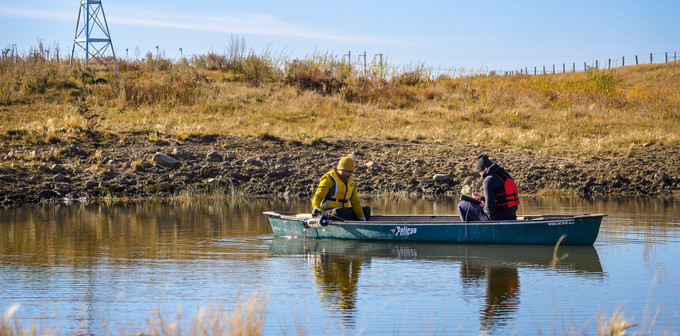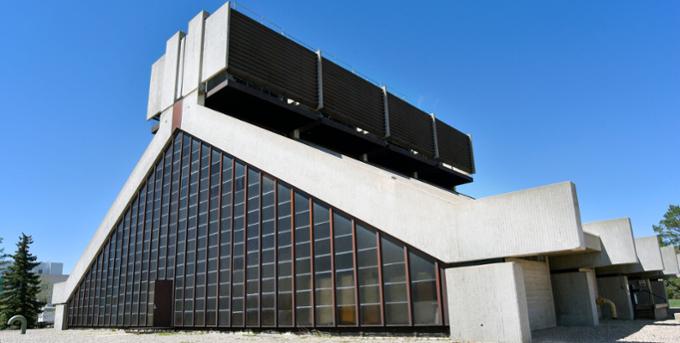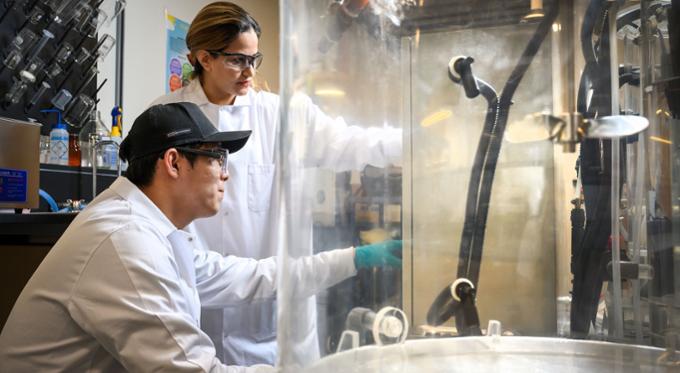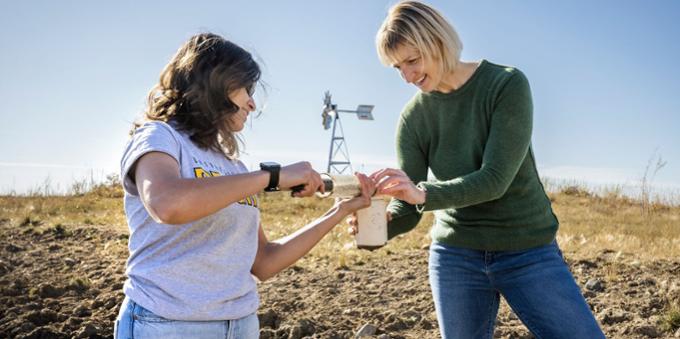
Environment and Climate Action
Strengthen Connections With Our Environment
All decisions regarding our activities should be cognizant of the impact on future generations. This includes a commitment to climate action through development and research initiatives, as well as ecological and economic sustainability through responsible stewardship of the land and resources.
Goal: 25% Reduction in our ecological footprint.4
4 25% reduction in current greenhouse gas (GHG) emissions, waste production, and water consumption.
Environment and Climate Action – the fourth area of focus in our 2020-25 Strategic Plan – provides a framework for how the University will strengthen its connection with, and protection of, the environment and our climate through three major objectives:
- reduce greenhouse gas (GHG) emissions
- develop the University of Regina as a Living Lab
- decrease the production of waste and consumption of water
Each objective is a testament to our unwavering commitment to reducing the University’s ecological footprint by 25 percent. We wholeheartedly invite all our stakeholders to participate in this mission, as we believe we can make a significant impact together. Your involvement is not just appreciated but integral to our success.
To help guide this cultural and operational shift, in Fall 2022, two critical initiatives were launched: unveiling a new multi-year Sustainability Action Plan and establishing a new Sustainability Office. This office, which will be pivotal in steering our environmental initiatives, is a testament to our commitment to effective and strategic sustainability management. Its establishment underscores our dedication to ensuring sustainability is at the core of all our operations.
The University currently supports three Canada Research Chairs, focusing on various aspects of clean energy development, water security, the environment, and climate change.
This focus also supports and builds on the University’s remarkable success in progressive energy management. From 2009 to 2019, the University reduced total electrical consumption by 13 percent and per square foot electrical consumption by 22 percent. This significant accomplishment, alongside our waste, water, and transportation initiatives, led the University to win the 2022 Regina & District Chamber of Commerce Paragon Business Excellence Award for Environmental Excellence. This recognition is a testament to our commitment to sustainability and a source of pride and inspiration for all of us to continue our journey towards a more sustainable future.
Reduce Greenhouse Gas (GHG) Emissions
With the recognition that as a society we are in a climate crisis, the University of Regina is committed to a reduction in GHG emissions from our infrastructure and from the activities of our stakeholders. Recognizing the connection between our everyday actions and the environment we understand that both individual and collective actions can make a difference.
Objective Goals
- Develop a position dedicated to sustainability
- Determine mechanisms for significant reductions in GHG emissions from infrastructure
- Report GHG emissions regularly
- Evaluate required incentive structures for individuals to contribute to positive climate impact
- Encourage ecologically sustainable travel and support virtual access to conferences and gatherings

University of Regina as a Living Lab
Living labs are a form of open innovation through modelling and creating real-life environments sustained by partnerships and collaborations for the creation, prototyping, validating, and testing of new technologies, services, products, and systems in real-life contexts. The University of Regina is recognized as a leader in environmental, climate change, and clean energy research, and as such has a great opportunity to act, monitor, and model sustainability for communities as a Living lab that pilots ways to achieve net-zero emissions sustainability. This living lab framework may additionally act as a model for future research in additional areas of focus.
Objective Goals
- Embrace a collaborative spirit as we join forces with provincial and federal government, industry, and community partners to pilot novel, sustainable, emissions-reducing technologies and practices at the University
- Reassure our commitment to the cause by proactively prioritizing climate change mitigation and adaptation research.
- Use new buildings on campus as demonstration projects for green building opportunities
- Explore opportunities for living labs across campus and within the community

Reduction in Production of Waste and Consumption of Water
The consumption of materials and the production of waste have a long-lasting impact on the environment. In addition, water quantity and quality are limited resources in Saskatchewan, and their preservation are imperative for the continued prosperity of the province. Therefore, the University of Regina is committed to the reduction of waste production and water consumption.
Objective Goals
- Monitor and reduce water consumption rates on campus
- Support research on water quantity and quality
- Consider all discovery (teaching and research) activities in terms of their impact on the environment
- Repurpose existing building infrastructure in renovations
- Implement sustainable procurement protocols and operating practices
